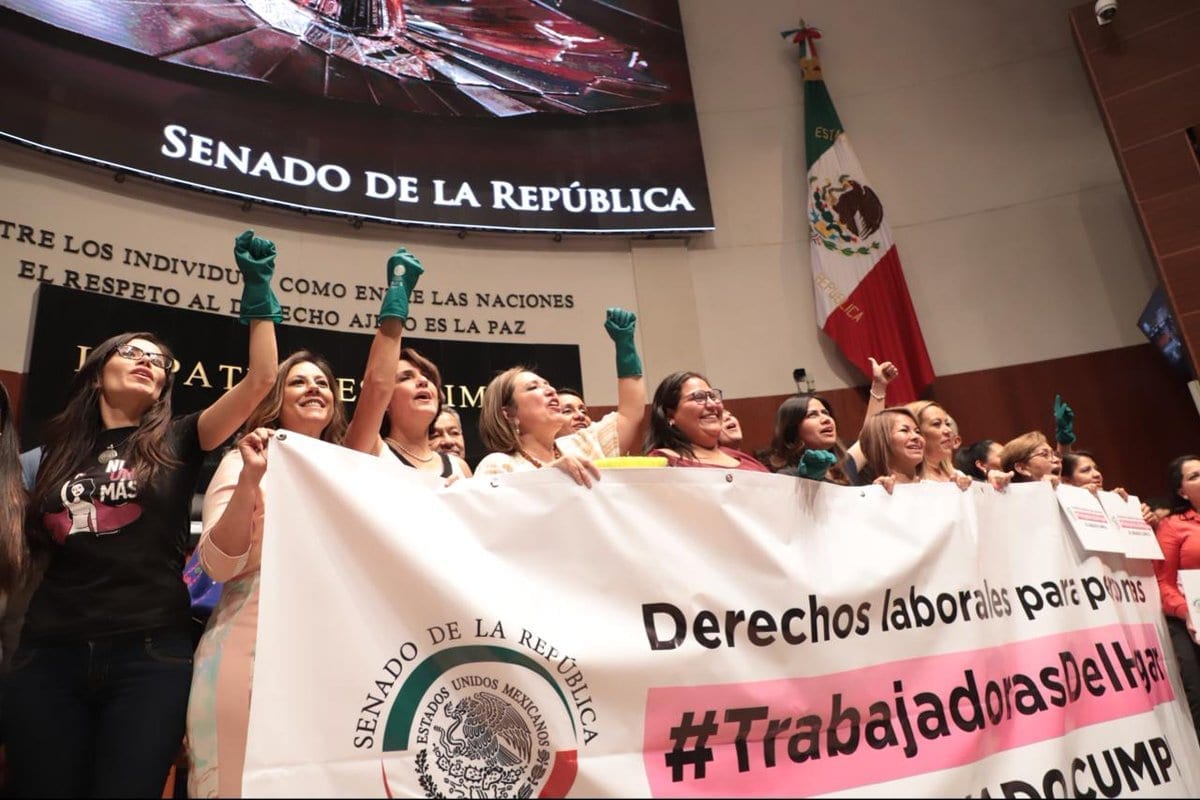Legislation requiring written contracts, paid vacation and annual bonuses for domestic workers passed Mexico’s House and Senate and is expected to be signed into law by President Andrés Manuel López Obrador.
The landmark law, which also prohibits employers from hiring domestic workers younger than age 15, requires employers provide at least a day-and-a-half off each week and defined rest periods.
The law comes after domestic workers across Mexico began organizing nearly two decades ago to push for their rights on the job, first forming a Support and Training Center for Domestic Workers (CACEH) and in 2015, launching the country’s first domestic workers’ union, SINACTRAHO. Both CACEH and SINACTRAHO are Solidarity Center partners.
“After 18 years of fighting through the Support and Training Center for Domestic Workers and SINACTRAHO, some of our demands are reflected,” SINACTRAHO said Monday in a Tweet after the Senate approved the bill. “We know that we must continue working, but today we are sure that the voice and demands of domestic workers have been heard.”
Domestic workers are rarely covered by countries’ labor laws, with domestic work often viewed as not “real” work. Yet more than 67.1 million domestic workers, predominately women, care for others’ families and homes invisibly and in private, often required to live on the premises of their employer. Away from the public eye, they frequently are subject to abuse.
Domestic Workers’ Global Fight for Decent Work
In Mexico and around the world, domestic workers are joining together to champion their rights to safe work, decent wages and fair treatment on the job. Domestic workers in Mexico took part in the global campaign spearheaded by the International Domestic Workers Federation (IDWF) and the IUF, the global union federation, to successfully push for the 2011 ratification of the International Labor Organization’s historic Convention 189 on domestic workers’ rights. The Domestic Workers Convention went into effect in September 2013 and has been ratified by more than 20 countries.
The obscurity in which domestic workers labor and their daily struggles for respect and fairness were illuminated in this year’s Academy Award-winning film, Roma. The film’s depiction of live-in maid Cleo, working for a family in crisis in turbulent 1970s Mexico City as her own life takes a devastating turn, has widened space for domestic workers to push for their rights and recognition.
Marcelina Bautista, a former domestic worker who founded the Center for Support and Training of Domestic Workers (CACEH) and served as SINACTRAHO co-president, has screened the film widely. She discusses with audiences the real-life challenges Mexican domestic workers confront—and how similar they are to those Cleo faces in the movie.
For Bautista and the 2 million domestic workers across Mexico, the far-reaching legislation defining domestic workers’ rights is a big step after a long struggle.
“We can only hope it will improve the lives of so many women not only on paper but in reality,” Bautista told the New York Times.

